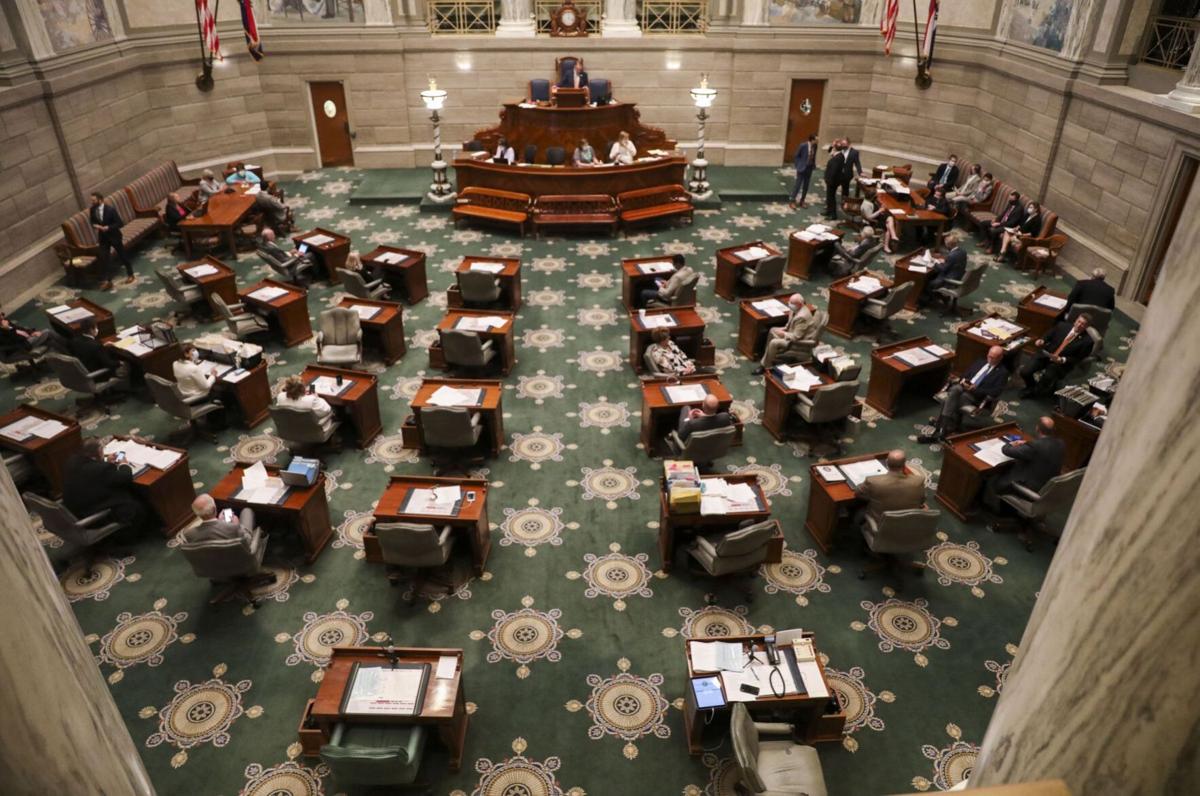JEFFERSON CITY â A Missouri appeals court order Monday tossing the ballot summary for a GOP-backed constitutional amendment on redistricting could be the final word on the topic before voters weigh in on Nov. 3.
The state has opted not to ask for the Missouri Supreme Court to weigh in after unsuccessfully defending the ballot summary twice this month, once in Cole County Circuit Court and again Monday before the Missouri Court of Appeals, Western District.
By not asking the Supreme Court to intervene, state attorneys representing Republican lawmakers and Secretary of State Jay Ashcroft reduce the risk of another adverse ruling â one that couldâve resulted in more changes to Amendment 3 that could have been detrimental to the measureâs chances of passage.
People are also reading…
But, even though the state had opted not to appeal the order, haggling over what language is to appear on the ballot isnât over just yet.
Chuck Hatfield, an attorney for the No on 3 campaign, asked the court of appeals on Tuesday to reconsider its Monday ruling in hopes the court will further change the ballot wording.
The ânoâ campaign has argued the GOP-backed ballot language was misleading in its attempt to convince voters to back a map-making plan similar to the one voters repealed two years ago.
If the court sides with Hatfield, ordering more changes to the ballot language, the attorney generalâs office could still ask the Supreme Court to intervene. If the appeals court rejects Hatfieldâs motion, that courtâs wording would be poised to appear on the Nov. 3 ballot.
The ballot language the court ordered on Monday asks voters if the Missouri Constitution should be amended to:
⢠Ban gifts from paid lobbyists to legislators and their employees.
⢠Reduce legislative campaign contribution limits.
⢠Change the redistricting process voters approved in 2018 by: (i) transferring responsibility for drawing state legislative districts from the Nonpartisan State Demographer to Governor-appointed bipartisan commissions; (ii) modifying and reordering the redistricting criteria.
Hatfield asked the court to reorder the bullet points so that the redistricting question appears first. He said this would highlight what the court called the questionâs âmost significantâ change.
In contrast to the courtâs wording, Circuit Judge Patricia Joyceâs order last month placed the redistricting bullet point first on the ballot.
Hatfield also said the new language would inaccurately imply all lobbyist gifts would be banned under the measure, when gifts from lobbyists related to legislators would still be allowed.
Joyceâs wording â which asked if voters would like to â[l]ower legislative gift limit from $5 to $0, with exemptions for some lobbyists?â â appeared more in line with the language Hatfield is seeking.
Republicans have long argued voters were confused by the Clean Missouri campaign of 2018, which asked voters to approve alterations to redistricting along with several other ethics-related changes.
GOP lawmakers have expressed worries that more Democrats would be elected under the âClean Missouriâ system, which places control of the map-making process with a nonpartisan state demographer who is to emphasize partisan fairness and competitiveness.
A âyesâ vote on Amendment 3 in November would support the Legislatureâs redistricting system, which places control of map-making with a bipartisan commission; a ânoâ vote would be to support the nonpartisan demographer system.
Republican lawmakers placed the question on the ballot earlier this year after contentious debate with Democrats.
Senate Democrats in February allowed a vote on the Republican plan after stalling action for several hours.
At the time, state Sen. Scott Sifton, D-south ĂŰŃż´ŤĂ˝ County, was tight-lipped when asked why Democrats abruptly ended their filibuster.
On Tuesday, Sifton said Republicans were going to end the resistance anyway by employing a rarely used parliamentary maneuver to cut off debate.
He said Senate Democrats, behind closed doors, had also raised concerns that the ballot language proposed by the GOP wouldnât withstand a court challenge.
requires ballot summaries to be âa true and impartial statement of the purposes of the proposed measureâ and âneither intentionally argumentative nor likely to create prejudice either for or against the proposed measure.â
On Tuesday, Sifton told the Post-Dispatch, âWe believed that the ballot language was flawed and we believe that the courts have demonstrated that we were correct on that.â
The Democrats didnât highlight the perceived flaws during debate, a tactical decision that meant Republicans were less likely to address the concerns before placing the question on the ballot.
âWe certainly didnât want the Republicans to catch their mistake,â Sifton said, âand itâs a good thing the courts did catch their mistake.â









